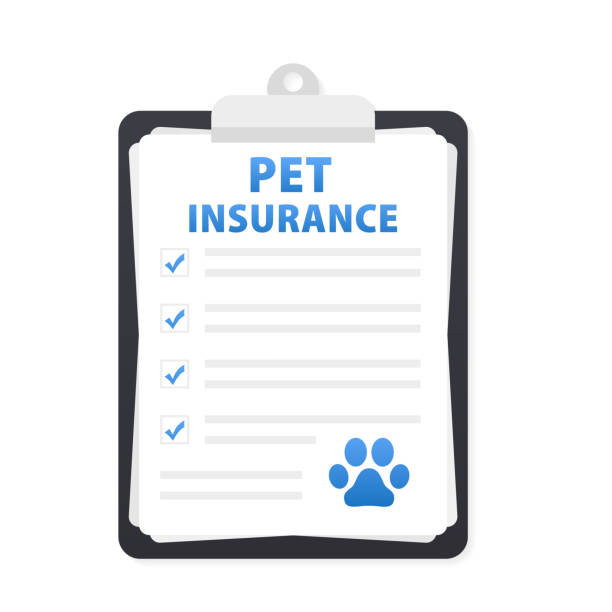Running a small business comes with a multitude of responsibilities, from providing quality products or services to managing day-to-day operations. However, one crucial element often overlooked is liability insurance. For small business owners, liability insurance isn’t just a safeguard—it’s an essential component of risk management that protects against financial losses resulting from claims and lawsuits. In a world where legal claims and accidents can happen unexpectedly, having the right liability insurance can mean the difference between business continuity and financial devastation. Here’s why liability insurance is vital for small business owners and how it can protect your business.
Table of Contents
Toggle1. Understanding Liability Insurance
Liability insurance is designed to protect businesses from claims involving bodily injury, property damage, or other liabilities for which the business could be held responsible. This type of insurance covers legal fees, medical costs, and potential settlements or judgments, which can be a financial lifeline if your business faces a claim. There are different types of liability insurance policies, each tailored to specific risks associated with various industries and business activities.
For small business owners, liability insurance often falls into three main categories:
- General Liability Insurance: Covers bodily injury, property damage, and personal or advertising injury claims. This is the most common form of liability insurance for businesses and provides broad coverage.
- Professional Liability Insurance (also known as Errors and Omissions insurance): Protects businesses that provide professional services or advice, covering claims of negligence or failure to meet professional standards.
- Product Liability Insurance: Specifically designed for businesses that manufacture, distribute, or sell products, covering claims related to product defects or harm caused by the products.
2. Why Liability Insurance Is Crucial for Small Businesses
Liability insurance is important for businesses of all sizes, but it’s especially critical for small businesses. Unlike large corporations, small businesses may not have the financial resources to absorb the costs of a lawsuit or major claim. Here are some key reasons why liability insurance is a must-have for small business owners:
A. Protection Against Lawsuits and Claims
Even the most diligent business owner can face legal claims, which may arise from accidents, dissatisfied customers, or unforeseen errors. For example, if a customer slips and falls at your business premises, they may sue for medical costs and damages. Similarly, if a client believes your professional advice led to financial loss, they could file a negligence claim.
Without liability insurance, your business could be responsible for paying legal fees, settlement costs, and any resulting damages out of pocket. These expenses can be substantial, potentially draining your resources and affecting the business’s financial stability. Liability insurance covers these costs, protecting your assets and allowing you to continue operations.
B. Ensuring Business Continuity
A single large lawsuit can disrupt a small business to the point of closure. Small business owners often operate on limited budgets, and an unexpected legal claim could quickly exhaust cash reserves. Liability insurance mitigates this risk by covering legal expenses and damages, allowing your business to recover more quickly and continue operations without severe financial strain.
By safeguarding against financial setbacks, liability insurance also gives business owners peace of mind, enabling them to focus on growing the business instead of worrying about potential liabilities.
C. Enhancing Credibility and Trust
Having liability insurance can improve your reputation and credibility with clients, vendors, and partners. Many clients, especially in industries like construction, healthcare, and consulting, require proof of liability insurance before doing business. They want to know that, should something go wrong, there’s a safety net in place.
Displaying that your business is insured assures clients that you’re responsible and committed to mitigating risks. This can make a difference in winning new contracts or partnerships and instilling confidence in your customers.
D. Compliance with Legal and Contractual Requirements
In some cases, liability insurance is not just a good idea—it’s a legal requirement. Depending on your industry and location, you may be legally required to carry certain types of liability insurance. For instance, contractors and healthcare providers are often required to have liability coverage due to the high-risk nature of their work.
Additionally, many commercial lease agreements require tenants to have general liability insurance to protect the property owner from liability in case of accidents. If your business works with government agencies, large corporations, or other entities that mandate insurance, having the appropriate liability coverage is essential to meeting these requirements and avoiding legal penalties.
3. Types of Liability Insurance Small Business Owners Should Consider
Selecting the right type of liability insurance depends on the nature of your business, the risks you face, and any regulatory or contractual obligations. Here are some of the most common types of liability insurance policies that small businesses should consider:
A. General Liability Insurance
General liability insurance is a must-have for most small businesses. It covers claims related to bodily injury, property damage, and personal or advertising injury. Here are some examples:
- Bodily Injury: If a customer is injured at your place of business, this insurance covers medical expenses and legal costs.
- Property Damage: Covers damages you or your employees might accidentally cause to someone else’s property, such as a client’s office.
- Personal and Advertising Injury: Provides protection against claims of defamation, libel, or copyright infringement that may arise from marketing activities.
This coverage is essential for customer-facing businesses or businesses that operate from physical locations.
B. Professional Liability Insurance (Errors & Omissions)
Professional liability insurance, also known as Errors & Omissions (E&O) insurance, is ideal for businesses that provide professional services or advice. It covers claims of negligence, misrepresentation, and failure to deliver services as promised. For instance:
- Consultants and Advisors: If a client believes they suffered a financial loss due to your advice, they may sue for negligence. E&O insurance covers legal fees and settlements in such cases.
- Healthcare Professionals: Physicians, therapists, and other healthcare providers often face liability for misdiagnosis, treatment errors, or other issues. Professional liability insurance is essential in these fields.
If your business offers specialized advice or services, professional liability insurance is crucial to protect against claims of professional negligence.
C. Product Liability Insurance
Product liability insurance is essential for businesses that manufacture, distribute, or sell products. It covers claims arising from product defects that cause injury or harm. Examples include:
- Manufacturers and Retailers: If a product you sell causes injury due to a defect, you may be held liable for damages. Product liability insurance covers the legal costs and any compensation awarded to the claimant.
This type of insurance is especially relevant for businesses involved in food production, electronics, toys, and consumer goods, where the risk of injury is higher.
D. Cyber Liability Insurance
In today’s digital world, cyber liability insurance is becoming increasingly relevant, especially for small businesses that handle sensitive customer data. Cyber liability insurance covers the costs associated with data breaches, cyberattacks, and other digital threats.
For businesses that rely on digital transactions, store customer information, or manage online platforms, cyber liability insurance can help cover the cost of data recovery, legal fees, customer notification, and even reputational damage control.
4. How to Choose the Right Liability Insurance for Your Small Business
Selecting the right liability insurance policy involves assessing your business’s unique risks and needs. Here are some steps to guide you:
A. Conduct a Risk Assessment
Start by identifying potential risks your business faces. Consider the nature of your products or services, your location, and any industry-specific risks. For example, a restaurant might prioritize general and product liability, while a financial advisor may need professional liability insurance.
B. Compare Policies and Providers
Different insurers offer various coverage options, premiums, and limits. Shop around and compare policies to ensure you’re getting the best value. Don’t just focus on price—look at the coverage limits, exclusions, and customer reviews to find a policy that meets your business’s needs.
C. Determine Coverage Limits
Liability insurance policies have limits on the amount they will pay for claims. Ensure the coverage limit aligns with your business’s risk level and potential exposure to large claims. For example, high-risk industries may need higher limits to cover possible lawsuits.
D. Consider Bundling Options
Some insurance providers offer business owner’s policies (BOPs) that bundle multiple types of insurance, such as general liability and property insurance, into one package. Bundling can be a cost-effective way to get comprehensive coverage while simplifying the insurance management process.
Final Thoughts
Liability insurance is an essential component of risk management for small business owners, providing financial protection, credibility, and peace of mind. Whether your business is customer-facing, product-based, or service-oriented, liability insurance safeguards your assets and allows you to focus on growth without the constant worry of unexpected lawsuits.
Investing in liability insurance might seem like an added cost, but it’s a critical expense that could ultimately save your business from financial ruin. By choosing the right coverage and tailoring it to your business’s specific needs, you can secure your business’s future and ensure it has the resilience to withstand the unexpected.

